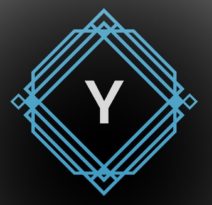When I'm old and grey, I plan to squat and deadlift.
This is because I aspire to be that cool little old lady in the gym that looks like she could outlift you and does NOT care what you think.
I also want my body to function as well as possible into old age.
So why are the squat and deadlift so important?
Why You Should Squat
The body's ability to squat is a foundational movement. We were built to squat, from the way our joints function to the design of our bones and musculature.

I don't know about you, but I always want to be able to squat down to play with puppies. Photo by Marvin Meyer on Unsplash
Fitness professionals use the basic squat as an excellent first evaluator for a client. I can observe the average person do a couple of air squats and tell immediately where there's movement dysfunction. (Don't worry, everyone has some dysfunction, myself included.)
This is why perfecting your squat is so key. The squat involves so many muscle groups in your body that it serves as an indicator for your overall muscoskeletal functionality.
Watch this video for a good tutorial on how to squat.
Muscles Worked By the Squat
The squat is often called "the king of lifts" because you would be hard-pressed to find another move that works as many muscles all at once. It is a full-body compound movement.
For your lower body, it works the muscles of your butt (gluteus maximus, medius and minimus), your quads and hamstrings, hip flexor muscles and your calves.
You need your core muscles to stabilize your body under tension and thus the squat is an excellent core and trunk move as well.
People often think of the squat as a "leg day" move, but a back squat (loaded barbell across your back) also works your shoulders, chest and back.
A well-performed squat through a full range of motion (as deep as you can go with good posture and stability) demonstrates mobility, flexibility and balance.
These are traits I certainly want to preserve as I get older!
Why You Should Deadlift
I learned about the deadlift in college but never performed it with any regularity until I was much older.
This move can seem intimidating if you've never done it before. There are a lot of technical nuances that make it seem complicated, but when done properly, it's actually quite safe.
It's another important move to learn and incorporate into your lifting regimen.
If you're not sure about what it is or how to perform a deadlift, I encourage you to watch this video before reading on.
I wish I had learned to do a proper deadlift earlier in life. The deadlift, over almost any other movement I can think of, targets and builds the muscles responsible for good posture. Read here about why posture is so important.

She looks like she has great posture. Photo by Anastase Maragos on Unsplash.
Muscles Worked by the Deadlift
The deadlift is usually categorized as a "back" workout. However, your whole posterior chain is involved to perform this move.
Your quads extend the knee at the bottom of the move. Your butt and inner thighs engage to extend the hips at the top.
The erector muscles, which run along the outside of your spine, engage to keep your back straight and extended. These contribute to the postural benefits I mentioned above.
Your lat muscles, key to pulling movements, work to keep the bar against your body during the move, which is important to maintain proper form and balance.
The muscles of your shoulders/upper back such as your traps and rhomboids engage to keep your shoulders "packed" (back and slightly depressed) so as not to round them during the movement. Again, excellent training for good posture.
And finally, just like the squat, your core muscles work during the deadlift to stabilize and prevent hyperextension.
Conclusion
The squat and deadlift are two of the most valuable lifts you can do. They have carryover into real life movement and functionality.
Besides the barbell back squat and conventional deadlift, we can talk about endless varieties of both movements that will emphasize different muscle groups, depending on your goals.
Because these moves work so many muscle groups at once, I like to use them as a first move in my exercise programs. Begin your lifting workout with a set of squats or deadlifts and you're off to a great start. Your muscles are primed for everything else you decide to do.
If you're unsure of your form or where to start, have someone experienced help you out. All of us can benefit from having someone observe our lifts to identify areas for improvement.
Happy squatting and deadlifting!

